Holocaust Remembrance Day, a national memorial day marked in Israel every Spring to remember the six million Jewish victims of the Holocaust, will not be the same this year. Much like everything else. The 24-hour remembrance day, which begins at sundown on Monday, is usually marked with large state ceremonies and events, and the wail of a two-minute siren that brings the country to a standstill as all transportation stops and pedestrians bow their heads in silence.
This year, there isn’t much transportation and mask-wearing pedestrians should have a good reason to be outside as per government directives to contain the spread of the global coronavirus pandemic. With public gatherings banned, the country is preparing to honor those murdered by the Nazis with virtual ceremonies and events.
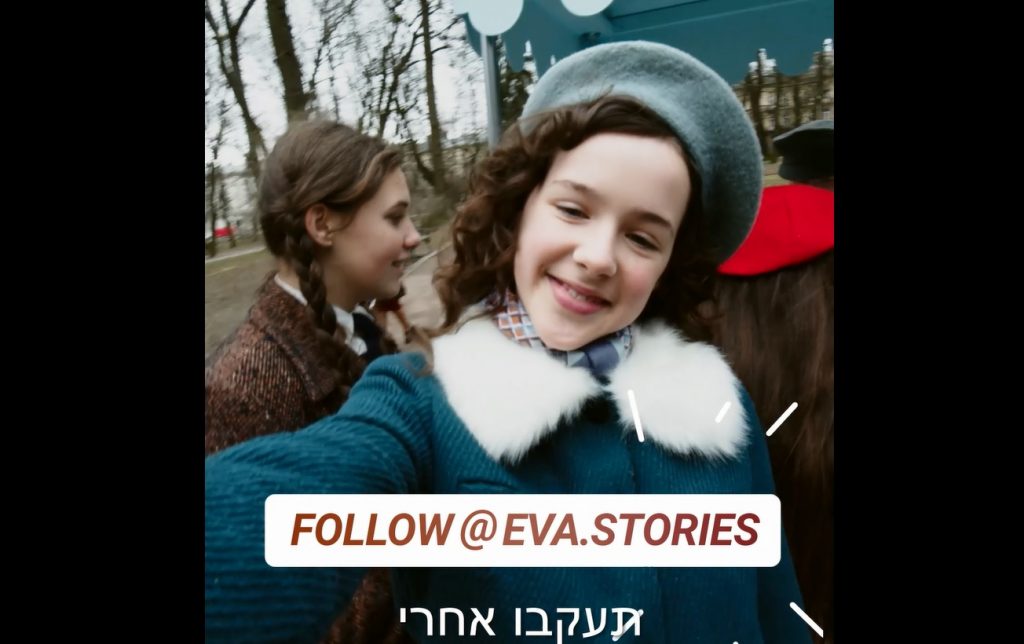
The official state ceremony for Holocaust Remembrance Day will be broadcast on Yad Vashem’s website and Facebook page at 20:00 pm Israel time on Monday. The event was pre-recorded without an audience in Warsaw Ghetto Square at Yad Vashem on the Mount of Remembrance in Jerusalem and will include pre-recorded video remarks by Israeli President Reuven Rivlin and Prime Minister Benjamin Netanyahu. Yad Vashem Council Chairman and Holocaust survivor Rabbi Israel Meir Lau will light the Memorial Torch and the stories of six Holocaust survivors will be featured.
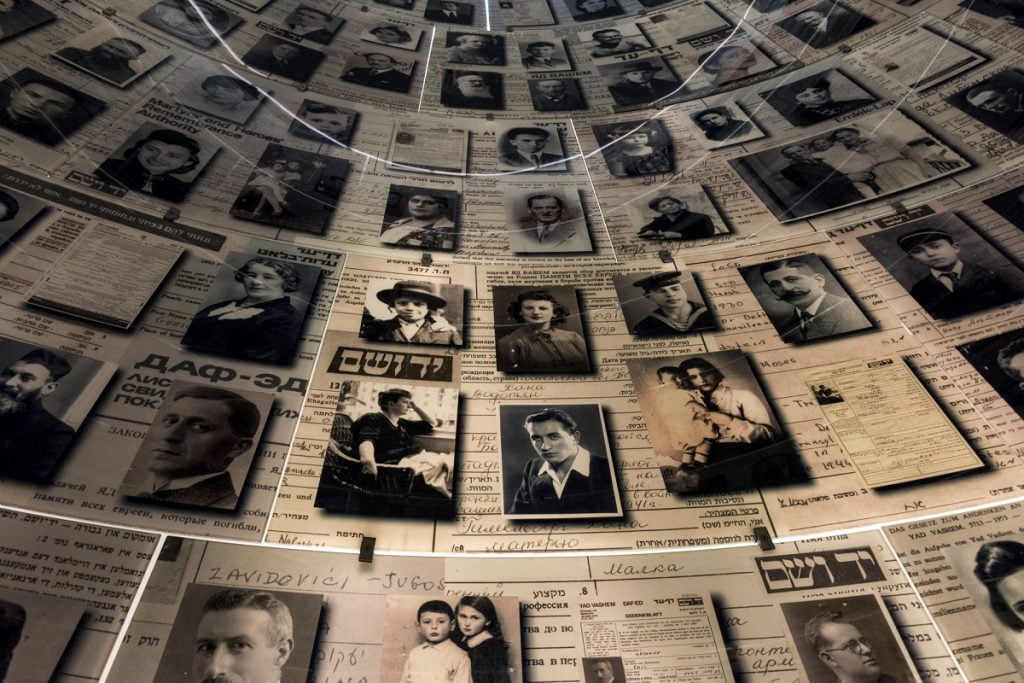
The March of the Living program, which brings thousands of Jewish and non-Jewish teens, Holocaust survivors, and participants from across the world to Poland and Israel to study the history of the Holocaust, has had to prepare an online initiative to mark Holocaust Remembrance Day. The project launched last week under the slogan NeverMeansNever and offers people the opportunity to virtually participate in one of the most meaningful personal moments of the program by composing a personal message and placing it on a virtual plaque against the backdrop of the infamous train tracks at the Auschwitz-Birkenau death camp.
Rivlin was the first to lay a virtual plaque last Tuesday with the message: “75 years after the Holocaust, the terrible tragedy of our people, as antisemitism raises its ugly head once again across the world, the nations of the world must stand together. Together, in the struggle against racism. Together, in the struggle against antisemitism and extremism. Together, for the protection of democratic values and human dignity. This is the mission of our time. This is our challenge. If we can unite around these things, then we can rise to the challenge.”
One of the more unique commemoration initiatives in Israel, Zikaron BaSalon (literally “Remembrance in the Living Room”), has also had to go online.
The popular memorial project was founded in 2011 by social entrepreneur Adi Altschuler to provide a more active and engaging experience of collective remembrance through testimony and discussion in private homes, communal halls, and community centers where families, friends, and guests gather to meet with and hear the personal stories of Holocaust survivors. The events are comprised of three parts beginning with the testimony of a Holocaust survivor. Then comes an act of collective expression, through poetry, art, music or any other form. Finally, participants are invited to discuss their thoughts and ask any questions.
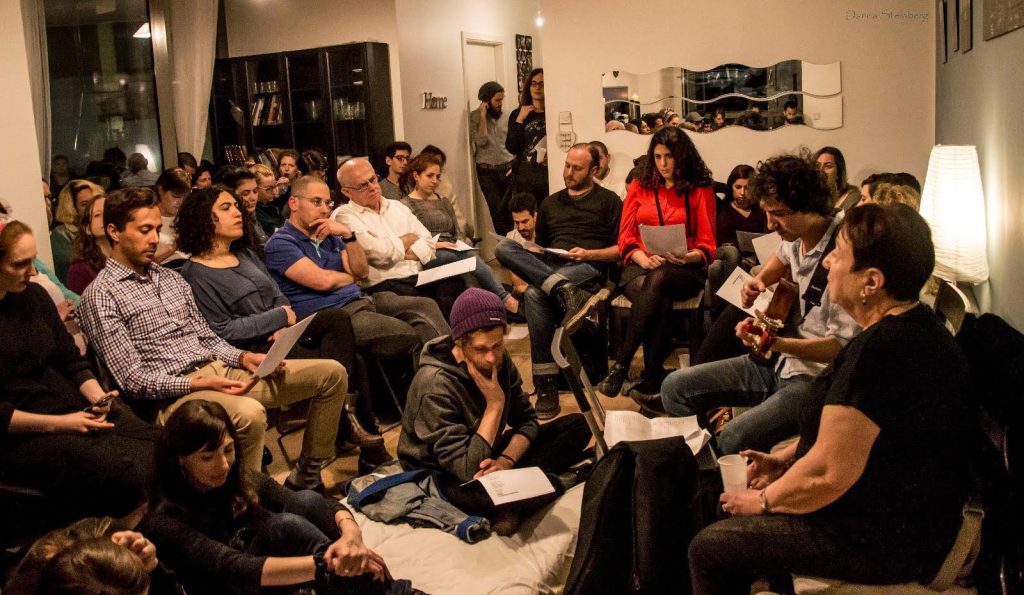
In recent years, children and grandchildren of survivors have been invited to share the stories and the events have spread to Jewish and non-Jewish communities across the world.
Zikaron BaSalon offers testimonies and discussion materials through “host kits” available on its website for communities without access to Holocaust survivors or experts; they can screen or read real survivor testimonies at the events and then launch into the rest of the structure.
But this year it has had to adapt further as whole events take place on Zoom and other video-conferencing tools. Not only because of the ban on gatherings but also because survivors would be in the high-group group. Zikaron BaSalon’s kits now include testimonies on themes such as extreme isolation, social distancing, and forced solitude during the Holocaust, human kindness in the face of extreme cruelty, and resilience and hope.
Whereas a typical Zikaron BaSalon event would last between 2-3 hours, the online versions are structured for the duration of an hour.
The survivors with whom Zikaron BaSalon has been working with for a decade have had to adapt too, says Dana Sender Mulla, a co-founder and member of the board for the initiative. “We are very aware of our commitment to the survivors, we’ve been working with some of them for over a decade, and they come and tell their stories every year, but some don’t have the tech tools or they don’t relate to telling their stories online,” she tells NoCamels.
Sign up for our free weekly newsletter
SubscribeOf the thousands of survivors working with Zikaron BaSalon, several hundred will relay their testimonies live virtually as part of this year’s Holocaust Remembrance Day, she says.
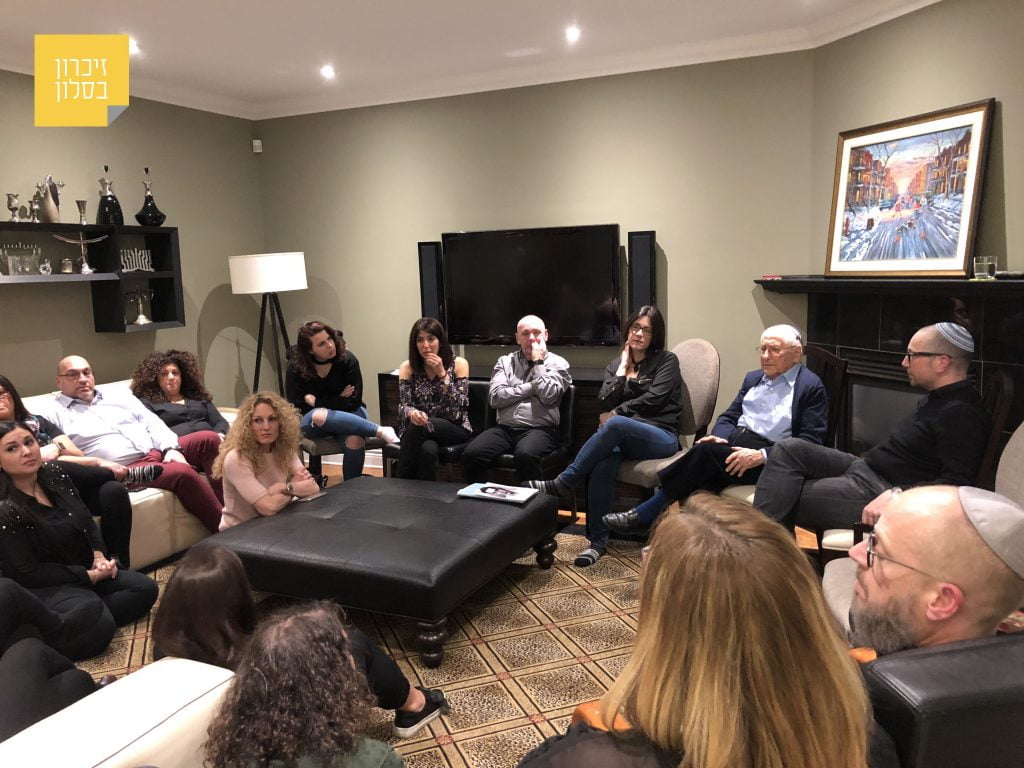
And more than a million hosts have registered with the organization to hold virtual commemorative events over the course of Monday and Tuesday, Sender Mulla tells NoCamels.
“We estimate that it’s actually more than a million because there are people who have been hosting these events for so long that they don’t really need our kits or anything, they already know what to do,” she says. Major entities like the IDF, Israeli missions abroad, and the Israeli American Council are also holding dozens of online Zikaron BaSalon events.
The Jewish Agency for Israel will also host a Zikaron BaSalon event which will be broadcast live on Monday evening on the organization’s Facebook page in Hebrew with French subtitles. It will air again on Tuesday on the Jewish Agency’s English page. The event will host Holocaust survivor Leah Hason who at the age of four was sent to a concentration camp in Ukraine with her mother. The two managed to escape and hid in a pig barn for a year, before fleeing into the forests until the war ended.
Jewish Agency Chairman Isaac Herzog noted that in today’s climate of isolation, hearing testimonies from Holocaust survivors is more important than ever.
“With physical face-to-face encounters put on hold for now, on this Yom Hashoah it is even more important to listen to Holocaust survivors sitting alone in their homes and leverage every means of technology at our disposal to make sure their voices and memories are heard,” he said.
“As we lose more and more Holocaust survivors each year, it is our responsibility to convey the memory of the Holocaust and continue to tell their story from generation to generation,” Herzog added.
It is a reality Zikaron BaSalon has also been thinking about. Sender Mulla tells NoCamels that the organization is here to “make sure that as Holocaust survivors pass away, their memories don’t go with them.”
To that end, Zikaron BaSalon has started offering more recorded testimonials in collaboration with Yad Vashem, as well as testimonials from second- and third-generations survivors trained to tell their relatives’ stories.
“This transition was, on the one hand, adapting and making sure that the core of who we are – keeping it intimate, keeping it engaging, and keeping it active, and not just a passive experience – remains the same. And also making a commitment to focus around the story, cause the Shoah [Holocaust] could be something so big but we want to focus on one story [at a time] and have a deep discussion about it,” Sender Mulla tells NoCamels.
Holocaust Remembrance Day begins at sundown on Monday. Zikaron BaSalon’s Adi Altschuler was selected to be one of the torch lighters in this year’s Independence Day ceremony which will take place next week.
Related posts

Rehabilitation Nation: Israeli Innovation On Road To Healing

Israeli High-Tech Sector 'Still Good' Despite Year Of War


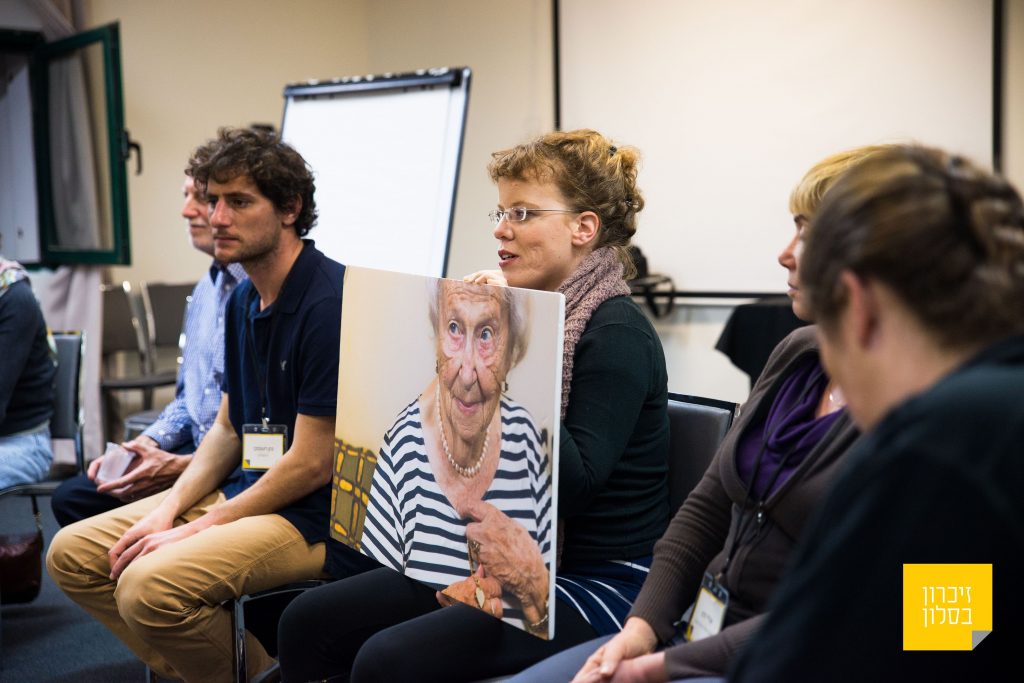


Facebook comments